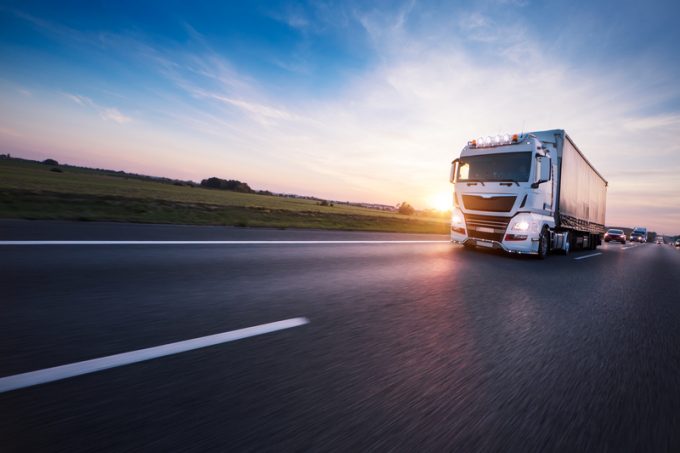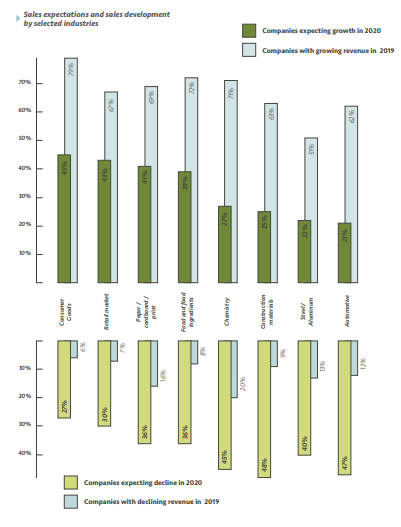
The Covid crisis has hit forwarders specialising in European road
transport, particularly those working in the automotive and construction
sectors.
Previous issues such as driver shortages and Brexit pale in
comparison with the lack of volumes and low pricing in the current
market.
Only 32% of forwarders expect revenues to grow this year, against 67%
last year, according to the European Road Transportation survey by
Transporeon, of more than 1,200 freight forwarders.
Some 38% expect a decline in turnover, against 10% last year, and
nearly half of the chemicals, construction and automotive industries
(45%, 48% and 47% respectively) are expecting declines this year.

Transporeon
Some 77% are seeing a decline in volumes, and 30% are seeing free
capacity in the market due to Covid. Spring 2020 saw a record high in
available capacity, with transport prices correspondingly low. As a
result, only 28% are planning to increase capacity this year – against
46% last year. One in 10 will cut their capacity.
Covid and its consequences dominate forwarder concerns, with 64%
saying it was the issue with the greatest impact on business, with 58%
noting that the economy was a primary issue. Last year, driver shortage
was seen as a real concern for more than 50% of forwarders, now it is
worrying for less than 15%.

Despite severe lockdowns in countries such as Italy and Spain,
freight forwarders in the UK, Ireland and Poland see the greatest impact
of Covid on their own situation, with over 70% of carriers in each
market affected.
However, digitalisation is one positive, with 74% of forwarders
saying it will improve their business. Nearly 50% said the best
optimisation would be cutting waiting and unloading times, while the
second most important measure was time slot management.

The majority of forwarders give customers the current position of the
shipment when asked, with 42% giving customers live tracking and 38%
give customers the ability to view status messages.
Emissions, however, remain a problem. Nearly 43% are unable to
calculate them, while 72% said less than 10% of their customers ask for
emissions data.


“In the currently very challenging economic situation, it’s
absolutely vital that transport companies, but also our governments,
continue to invest in digitalisation and data-driven infrastructures,”
said Stephan Sieber, chief executive of Transporeon.
“We see this in the survey results: three-quarters of all carriers
believe digitalisation will improve their business situation; and we see
it in the increased uptake in spot market opportunities, which only
become possible through enhanced digital technology.
“In the years ahead, I’m convinced digital technology will not only
make the industry more efficient, but also play a central role in
managing its environmental impact. And clearly we have a lot of work to
do there.”